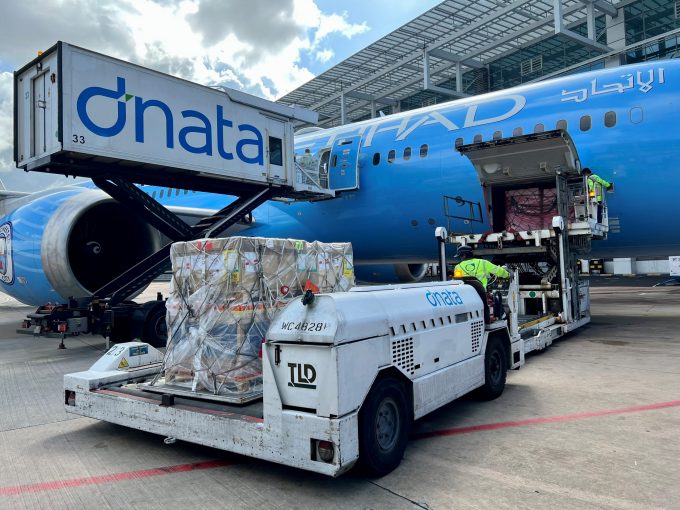Jacob David joins Etihad Cargo to lead product innovation
Etihad Cargo has appointed Air Canada Cargo’s Jacob David as senior manager products. Based in Abu ...

Recent trials are leading to the wider adoption of AI-powered solutions to optimise air cargo services, despite a number of challenges that continue to persist.
For both cargo operators and handlers, some of the areas of interest for potential deployment of AI include customs and compliance, route optimisation and inventory management.
Handlers are talking about AI-powered robots for example, that can help reduce turnaround times and labour costs by speeding up loading and unloading processes and improve cargo security with real-time monitoring ...
'Disastrous' DSV-Schenker merger would 'disrupt European haulage market'
'Chaos after chaos' coming from de minimis changes and more tariffs
List of blanked transpac sailings grows as trade war heats up and demand cools
Shippers in Asia restart ocean shipment bookings – but not from China
Forto 'sharpens commercial priorities' as it lays off one-third of staff
India withdraws access for Bangladesh transhipments, in 'very harmful' decision
'Tariff hell' leaves industries in limbo – 'not a great environment to plan'
Temporary tariff relief brings on early transpacific peak season
Pre-tariff rush of goods from US to China sees air rates soar, but not for long
Asian exporters scramble for ships and boxes to beat 90-day tariff pause
De minimis-induced ecommerce demand slump could cripple freighter operators
Forwarders 'allowing the fox into the chicken run' by supporting 'hungry' carriers
Hapag 'took the bigger risk' when it signed up to Gemini, says Maersk
'Restoring America's maritime dominance' – stop laughing at the back of the class
Navigating tariffs: 'like trying to solve a Rubik's cube while colour-blind'

Comment on this article